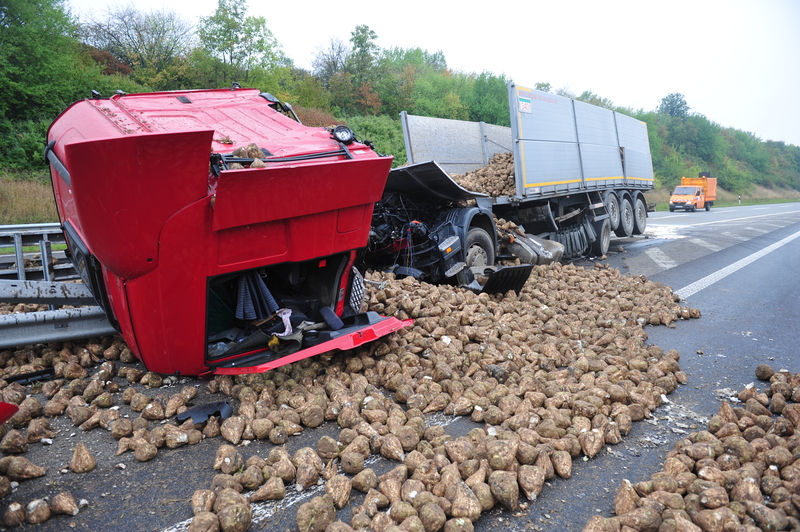Commercial trucks need to be in top condition to minimize the chances of an accident. While the condition of the brakes and tires are most often associated with defects that cause a crash, the cargo can be every bit as problematic. Federal Motor Carrier Safety Administration (FMCSA) regulations allow commercial trucks to weigh as much as 80,000 pounds including the truck weight and cargo. When the cargo is loaded incorrectly, it may change the center of gravity and the driver’s level of control. There is also the risk of unsecured cargo falling off or out of the trailer while in transit.
Rollover and jackknife accidents are frequently caused by how the cargo was loaded or secured. Top-heavy trailers are at risk of tipping over every time the truck turns, changes lanes or even when merging. Should the weight shift unexpectedly it could knock the trailer over and potentially cause the vehicle to roll. Strong gusts of wind can also tip a top-heavy trailer over because side of the trailer effectively acts like a sail on a boat.
Jackknife accidents are a consequence of an overloaded or improperly loaded trailer. An accident is a “jackknife” if it involves the trailer swinging forward as the tractor comes to a stop, folding up the entire vehicle much like a folding jackknife. Back-heavy trailers are more likely to jackknife, especially when the truck driver has a hard-braking event.
Commercial trucks are powerful, but even they have limitations. When a truck is overloaded or too much weight is situated over one axle, it can cause a brake failure or dramatically lengthen the time it takes for the truck to come to a complete stop. Many rear-end collisions involving a commercial truck and smaller vehicles can be traced back to brake defects caused by an overloaded trailer.
Vehicles following overloaded trucks can also be in immediate danger if the cargo breaks loose because it is not properly secured. Pieces of products, freight, construction supplies, and many other things can fall off a flatbed trailer or bounce out of a closed trailer. This means that drivers following the truck, either directly behind or in adjacent lanes, must suddenly avoid objects that spill into the roadway. Striking even a small object at highway speeds can be catastrophic and lead to severe injuries.
Truck accidents caused by unsecured or improperly loaded cargo may mean several parties are liable for the damages. While the truck driver is ultimately responsible for the safe operation of their vehicle other parties may also be named as defendants in certain situations. Aside from the driver and the company who owns the truck we would look closely at the crew who loaded the truck could as being held partially liable for any accidents caused by that cargo. Workers who load cargo are generally not employed by the trucking company and Instead, third-party employees, like those who work for retail or grocery stores, are in charge of adding and removing cargo from a trailer once it is in their loading bay. The FMCSA requires securements to be installed in cargo trailers that can bear certain weights. If those anchor points and tie-downs fail, then it might be the fault of the part manufacturer, not the trucker or the cargo crew.
We represent people who are injured because of the careless and reckless acts of others. At the end of the day your case can only be settled one time and you need to know all of the facts beforehand. The reason that insurance companies have paid our clients in excess of $130,000,000.00 is that we get the facts and are not intimidated at the prospect of going to trial when insurance companies fail to offer full compensation. A Sacramento truck accident attorney can help with serious injuries that require serious representation. We are the Law Offices of Guenard & Bozarth, LLP. Our attorneys have more than 60 years of experience specializing in only representing injured people. Call GB Legal 24/7/365 at 888-809-1075 or contact Guenard & Bozarth online. We would be honored to represent you!


